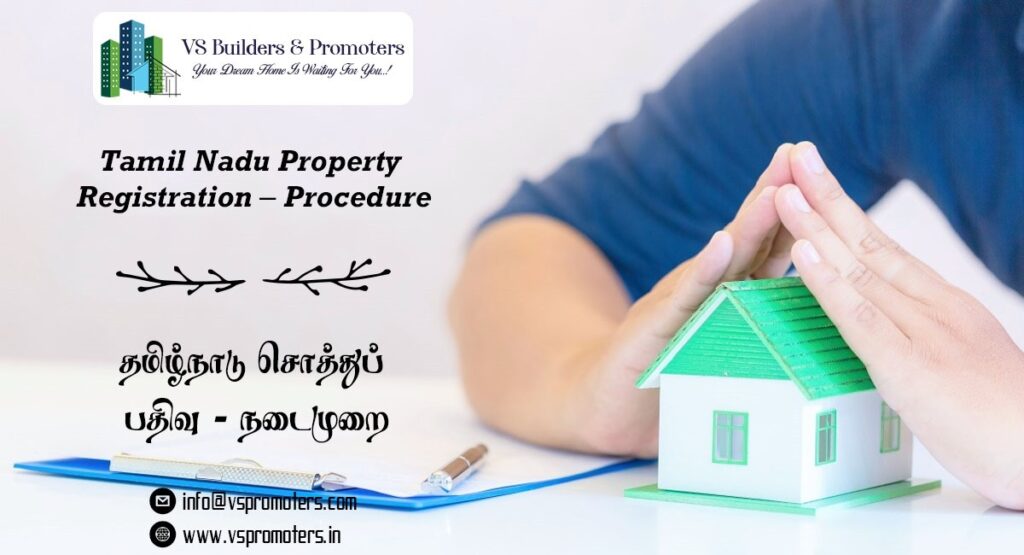
The property registration process in Tamil Nadu involves several steps to ensure a legal and transparent transfer of property ownership. Here is a general overview of the property registration procedure in Tamil Nadu:
General property registration procedure:
Document Verification:
Before initiating the registration process, both the buyer and seller should ensure that all the necessary documents are in order. This includes the sale deed, encumbrance certificate, and other relevant property documents.
Stamp Duty Payment:
The buyer needs to pay stamp duty for the property transaction. The stamp duty amount is usually a percentage of the property value and varies based on the property type, location, and other factors.
Prepare Sale Deed:
A sale deed is a legal document that officially transfers the ownership of the property from the seller to the buyer. It includes details such as the property description, sale consideration, and the rights and responsibilities of both parties.
Visit the Sub-Registrar Office:
Both the buyer and seller, along with two witnesses, need to visit the Sub-Registrar Office with the sale deed for registration. The Sub-Registrar is a government official responsible for property registrations.
Biometric Verification:
To enhance security and prevent fraudulent transactions, the biometric details (fingerprints and photographs) of the buyer, seller, and witnesses are captured at the Sub-Registrar Office.
Registration Fees Payment:
The buyer pay the registration fees at the Sub-Registrar Office. The fees are separate from the stamp duty and cover the cost of the registration process.
Property registration procedure:
Document Submission:
The buyer and seller submit the sale deed and other necessary documents to the Sub-Registrar for verification.
Verification and Approval:
The Sub-Registrar verifies the documents and ensures that they comply with legal requirements.
Witness Confirmation:
The witnesses also confirm their presence, and their signatures and thumb impressions are recorded.
Registration Number Allotment:
Once the registration process is complete, the Sub-Registrar assigns a registration number to the property transaction.
Document Collection:
The registered sale deed is collected from the Sub-Registrar Office. It serves as proof of property ownership and should be preserved by the buyer.
Mutation of Property Records:
The buyer should apply for the mutation of property records in the local municipal office to update the ownership details officially.
Conclusion:
It’s important to note that the property registration process may involve additional steps and requirements depending on the specific details of the transaction and local regulations. Additionally, it is advisable to consult with legal professionals or visit the official website of the Tamil Nadu Registration Department for the most accurate and up-to-date information.
Let us guide you through the journey of real estate purchasing with ease. With 10 years of experience in real estate asset acquisition, we can help you purchase the perfect apartment, land, villa, or commercial property. Don’t let the stress of buying property hold you back – trust VS Promoters to make the process hassle-free. With VS promoters as your trusted partner, you can confidently embark on this exciting path towards realizing your dreams of real estate.
For More Details:
Contact: +91 7094434780
Mail: info@vspromoters.com
Visit: www.vspromoters.in


